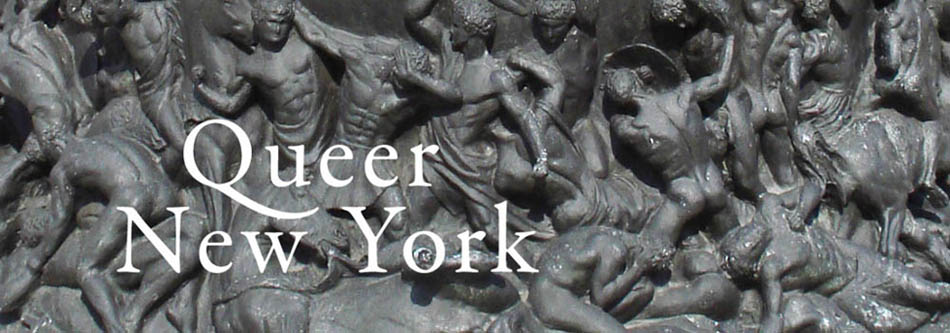Thursday, January 27, 2011
This Day In Gay History
For the past year or so, sometimes with a few interruptions, Bo Young and Dan Vera of the White Crane Institute, the publisher of the venerable White Crane Journal, have been putting out an online column called "This Day In Gay History."
It is fantastic. Truly amazing. Not just because it's informative—there have been a lot of glosses on this topic over the years, and many of them never get too far away from Madonna's birthday—but because it's such a passionate assertion of what I have called for ages "gay tribalism." This is the idea that there is an invisible cord running through the soul and spine of queer men and women that links us. Christopher Isherwood referred to this as "our kind," as in his wonderful book Christopher and His Kind.
This does not mean that we all have something in common, like Judy Garland (OK, maybe we do all have her; who can look at Meet Me In St. Louis or The Wizard of Oz all the way without tearing up?) but that we have an understandable, common core of sensibilities and feelings that we can tap into and that are indeed the real "gay roots." I love this idea; it feeds me every day. This is our own family, and it has sustained me all my life. It is seen in a line of glbt writers, thinkers, acters and actors, explorers, scientists, martyrs, lovers, fighters, soldiers, doctors, lawyers, philosophers, artists, dressmakers and artisans, and just plain common folk who were brave enough either to come out or not be hidden totally at a time when hiding was forced on us.
So get to This Day in Gay History. Bo and Dan run it on the White Crane website, and it also runs on their FaceBook page. You can reach it at:
http://www.facebook.com/l/e4fbbh-zovzPFisRD3_u7nPB03A;GayWisdom.org
And let them know how much it means to you.
Subscribe to:
Post Comments (Atom)




Judy Grahn explores a similar idea in her book Another Mother Tongue. I found it compelling and resonant when I read it in my early twenties. It was exciting and fun to see myself described in the pages so often, to have my likes, dislikes and instinctive responses connected to a tribe. Revisiting the book, it hasn't always stood up to scrutiny. I think Grahn herself would say she's more poet than historian, and some of her imaginative leaps now seem far-fetched to me. But I still value the book for what it gave me. I look forward to seeing this blog, and reading the Isherwood. Thanks, Perry.
ReplyDelete